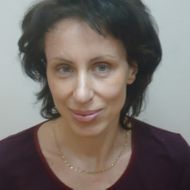- A
- A
- A
- ABC
- ABC
- ABC
- А
- А
- А
- А
- А
-
Department
Address: 123 Naberezhnaya Kanala Griboedova, room 322
190068 St Petersburg
Phone: 8 (812) 644-59-11 *61289
About the Department
The Department of Middle Eastern and African Studies is interdisciplinary and specialises in studying several regions of the Afro-Asian world. The department brings together experts who conduct research on the history, social, political, and cultural development of major countries in Western, Eastern, Central, and Southern Africa, as well as Israel, Turkey, Iran, Afghanistan, the 22 Arab states of the Maghreb and the Middle East, and the countries of Central Asia. The main goal of the department is to train highly qualified specialists in Asian studies, both for academic and practical fields. The department staff conducts lectures and seminars on language disciplines, history and source studies, politics and international relations, geography and social anthropology, religious studies, philosophy, ethnopsychology, literature, linguistics, culture, and art of the regions under study. A key focus of the department is the development of African studies and the formation of new interdisciplinary and interregional research directions, serving as a foundation for productive cooperation between young specialists, students, and postgraduates.
The department pays serious attention to involving students in research work and implementing scientific and practice-oriented projects aimed at helping students acquire professional skills in Asian and African studies. Doctoral and candidate-level scholars in history, economics, psychology, philology, and cultural studies supervise student research. A significant proportion of student end-of-year and graduation papers are interdisciplinary in nature. Research papers prepared at the department are published in both Russian and international journals that are included in global citation databases. Department staff and students present their research findings at national and international scientific conferences, such as the International Congress on Source Studies and Historiography of Asian and African Countries, the Congress of the Union Européenne des Arabisants et Islamisants, the Conference of the Society for the Medieval Mediterranean, and highly specialised forums such as ‘Textology and Source Studies of the East,’ and the Conference of the School of Mamluk Studies, among others.
The department offers instruction in classical and modern Arabic, including spoken and dialectal forms, as well as Hebrew, Turkish, and Persian. The professors and teachers of the department, including experienced practitioners and native speakers, are actively involved in methodological work, primarily based on the most effective Russian and international teaching methods and the search for new approaches to teaching that meet the modern standards of higher education and science. The department’s curriculum is regularly updated, and textbooks and teaching aids are prepared for publication. A unique, author-developed programme for studying classical and modern Arabic, as well as dialects from various regions of the Arab world, has been created.
Currently, the Department of Middle Eastern and African Studies has between 14 and 20 students enrolled in each of the five academic years. Students study a wide range of humanities subjects. This includes a core block (geography, history, source studies, anthropology, cultural development, and political systems of Africa and the Middle East, as well as the history of Eastern civilisations and philosophical systems) and courses corresponding to their chosen specialisation, such as ‘Society and Culture of Eastern Countries’ or ‘Political and Economic Development of Eastern Countries.’ Language training includes five years of Arabic and its dialects, as well as the option to study a second Eastern language—Hebrew, Turkish, or Persian. An individual learning path may also include studying Korean, Chinese, Japanese, or Vietnamese. Despite the challenges of learning two Eastern languages simultaneously, particularly Arabic alongside one of the East and Southeast Asian languages, experience shows that such a combination of linguistic skills provides graduates with unique opportunities in both practical and research fields. Students of the department successfully participate in language competitions and Olympiads, receive grants to study at universities in Arab countries, and undertake internships at partner universities abroad (in Egypt, Israel, Qatar, and the UAE), with opportunities for international mobility programmes.
